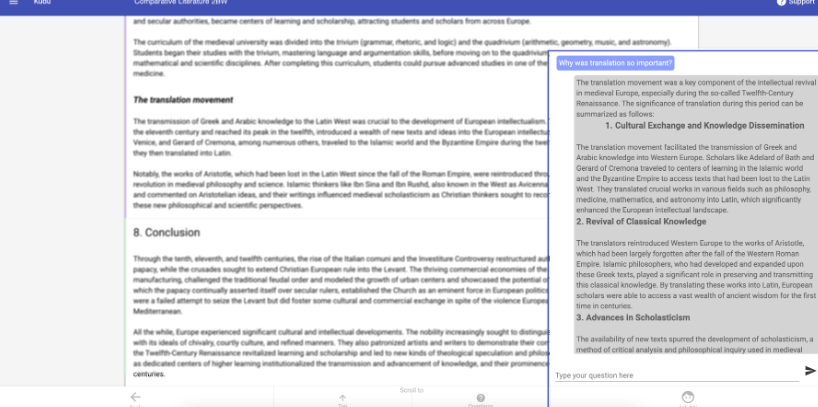The University of California, Los Angeles (UCLA) is about to launch a groundbreaking comprehensive literature course in the winter semester of 2025. All teaching resources for this course, including textbooks, assignments and teaching assistant resources, will be generated by artificial intelligence. This is an important step in the field of humanities. This is the first time. This innovative initiative leverages the Kudu platform, founded by UCLA physics and astronomy professor Alexander Kusenko. With the assistance of AI, course preparation time is greatly shortened, and professors’ time investment is also effectively controlled.
The University of California, Los Angeles (UCLA) will launch a new comprehensive literature course in the winter semester of 2025. The course's textbooks, assignments and teaching assistant resources will all be generated by artificial intelligence.
The course will cover literature from the Middle Ages to the 17th century, and all learning materials will be provided by the Kudu platform, founded by UCLA physics and astronomy professor Alexander Kusenko. This will be the first course in the humanities at UCLA to use Kudu-developed materials.

To develop these teaching materials, professor Zrinka Stahuljak provided Kudu with lecture notes, PowerPoint presentations, and YouTube videos from her past courses. While the course creation process typically takes three to four months, UCLA says professors' time commitment should be limited to 20 hours, and Kudu will compensate them for their time.
Professor Stahurjak said this approach will help her and her teaching assistants free up more time to engage in in-depth interactions with students, while also ensuring a more consistent delivery of course material. In addition, students can ask Kudu questions and get answers about course material, and these answers come only from materials provided by professors, rather than extensive information on the Internet. This innovative teaching method not only improves teaching efficiency, but also provides students with a more focused and professional learning experience.
This attempt by UCLA demonstrates the potential of artificial intelligence in education and provides new perspectives and possibilities for future exploration of the humanities.
Highlight:
? UCLA will launch the first comprehensive literature course generated by AI.
⏳ The professor’s time investment is limited to 20 hours, and Kudu provides compensation.
? Students can ask questions to Kudu and get exclusive answers to course materials.
UCLA’s move not only demonstrates the application potential of AI in higher education, but also provides a new direction for future teaching model reform. Through AI-assisted teaching, teachers can focus more on interaction with students and personalized guidance, improving teaching quality and efficiency, which ultimately benefits students. This indicates that artificial intelligence technology will profoundly affect future humanities education.